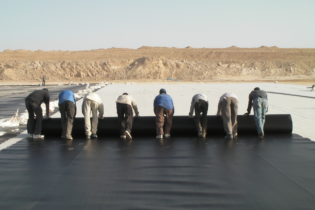On Tuesday, Judge Pierre Rabie dismissed Earthlife’s application to set aside the authorisation granted by Molewa for the installation and operation of a test smelter and two additional induction smelters at Pelindaba. Rabie also dismissed an interdict to halt NERSA from proceeding with the project.
The smelters are being brought in to decontaminate radioactive metal at the nuclear site. NERSA said the project was undertaken as a result of the country’s international duties as part of the Nuclear Non-proliferation Treaty. Earthlife also argued that the smelters were initially supposed to be commissioned, built, installed and up and running within a five year period, which was not the case. NERSA said this was an impractical and artificial interpretation of the environmental authorisation granted by the minister. Judge Rabie said it was clear that the minister’s authorisation only required that the composite project had to start within five years. He added that it would be wrong to break up the project into different parts and to interpret the minister’s decision in a manner requiring each element to commence within the five-year period.
Environmental justice organisation Earthlife Africa Johannesburg (ELA) lost its legal bid to halt nuclear waste smelting operations at the Nuclear Energy Corporation’s Pelindaba plant.
The ELA argued several points including that the Department of Environmental Affairs (DEA) granted the environmental authorisation for smelters to be installed without adequate information about the station’s climate change impacts.
Earthlife also argued that it was possible that the smelter could be turned to commercial use which would result in South Africa becoming “a nuclear waste junkyard”.
Unhappy about associated climate change impacts, the organisation said DEA minister Edna Molewa should have “correctly called for a climate change impact assessment for the power station”, and should have referred this application back to the DEA to make a fresh decision about the authorisation, once properly informed by the findings of the climate impact assessment.
“Instead, the minister rejected ELA’s appeal, thereby upholding the authorisation,” the organisation said.








